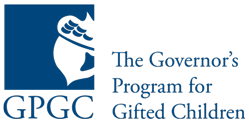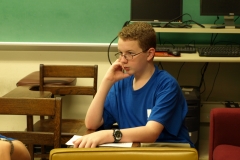Most of our afternoon classes don’t lend themselves well to weekly reports – the students are learning songs to sing in Chorus, the music and dancing in Musical, their lines and blocking in Drama, etc. We are looking to do at least one in-depth post over the summer about each one of those classes but for now, here are some reports from the few afternoon classes for which a weekly check-in makes sense.
Critical Thinking (Jessica Markstrom, Instructor)
Week One
This week the students took a personality test that allowed the instructor to see what types of traits they had (shy, leader, etc.) in order to place them into teams. We also played numerous games in the course. The games ranged from zero sum tactical games (Chess, Twixt, Score 4, Hippose and Crocodiles). I also introduced spatial games (Blokus, Tsuro), resource games (Ticket to Ride), rule based games (Fluxx), word games (Bananagrams), and odds games (Zombie Dice, Get Bit).
Week Two
This week was puzzle week in Critical Thinking. The students were challenged with various puzzle activities. One activity had each team putting together a 1,000 piece puzzle during the period. Another activity involved non-traditional 3 dimensional puzzles including placing odd shaped blocks back into cube-shaped box, a slide puzzle that was rectangular in shape in that students had to match the pattern and color on each side, and IQ Fit (a spatial puzzle game regarding patterns and resource allocation). The students had a packet of puzzles that included brain teasers, geometric puzzles, an extremely difficult sudoku puzzle, and mazes. Another day of puzzle week included logic puzzles.
Debate (Jessica Markstrom, Instructor)
Week One
Students were introduced to the Greek concept of topoi. Aristotle’s requirements of persuasive speaker was discussed. Different forms of logic were applied in a brain storming exercise. Socratic reasoning was introduced. Students were able to determine the 3 different types of debate resolutions. The week ended with the discussion of the prima facia burdens.
Week Two
The students were able to identify the prima facie burdens as well as the parts of a plan during in-class activities. Negative on-case argumentation types, such as “turns” and “take outs,” were introduced. Students wrote and presented topicality positions. A mock debate was performed to encourage public speaking abilities.
Computer Tech (Barry Humphus, Instructor)
Week One
Met the students and we introduced ourselves. Day two I discussed network topology and day three discussed network protocols. We also set up the initials computers in the lab.
Week Two
While we have had some technical problems with the equipment we have, we are managing to go forward so each student has an opportunity to learn.
Drama (Joey Boyette and Keith Chamberlain, Directors)
Week One
Students were given their roles in the drama, according to their auditions. They were introduced to warmups, theatre exercises, and some basic acting techniques. Students then did a “table read” of the script, so as to become familiar with the material. Character analysis assignments were given to the students.
Week Two
Students are getting experiences with different types of theatre games and warmups at the beginning of class. For the remainder of the period, we have been blocking the show each day, and have managed to get as far as act 2 thus far.
Musical (Keith Chamberlain, Director)
Week One
During the first part of the week, students were made familiar with the material through a viewing of the staged version, and were introduced to warmup techniques and theatre games. Toward the end of the week, they were assigned their final roles and began learning the vocals.
Week Two
We are just about finished learning the music for Act 1, and have determined that there are some cuts to be made to the material. Students have been doing very well, considering the difficulty level of the material.
Chorus (Colette Tanner, Director)
Week One
The students are now separated into voice parts and are in the process of learning the warm-up and ear training routine. We are also starting to learn a few of our performance pieces. This summer, the “theme” for the CHORAL CONCERT will be “A BRITISH INVASION.” The compositions of BRITISH composers from the Renaissance to the present will be highlighted…including the music of Tallis, Morely, Byrd, Dowland, Purcell, Handel, Holst, Vaughan-Williams, Britton, Rutter, Webber, Bowie, Queen and the Beatles. We will soon have our GPGC Choir Blog up and running (hopefully by the end of the weekend). You and the students can access information on the music and composers, recordings of their performance music and topics for discussion. Here is a link to the blog: http://gpgcsings.blogspot.com/
Large Ensemble (Rod Lauderdale, Conductor)
Week One
Large Ensemble is a group that anyone can join. Preparation for this ensemble is my biggest challenge. I never really know how many or what instruments I will have to work with until the second day of the program. Then I get to work figuring out what kind of group I will work with.
Week Two
Yes, this continues to be one of the most challenging summers for me. GPGC Large Ensemble is full of great children with a very wide range of musical experience. Though not unexpected for this age group, still a real challenge to deal with. In addition to arranging music of the whole group to play, I am arranging music for small groups of similar levels. Seems to be working so far.









